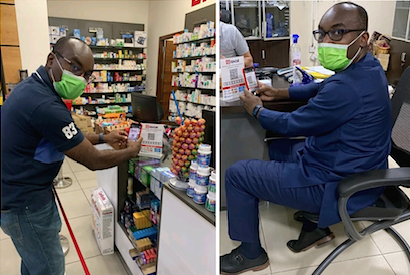Augustine Blay, a senior staffer in the Office of the Vice President of Ghana took to his personal media platforms to encourage Ghanaians to go cashless with the newly introduced QR Code system. He demonstrated how one would use a smartphone to scan onto the GhQR merchant addresses to effect payment at shopping outlets across Accra, Ghana.
In May 2020, Ghana was the first African country to implement a universal QR code payment solution using HPS. This set it as the first African country to introduce a universal QR code. Harmonization of QR codes on the national level means Ghanaians can easily pay merchants through multiple channels – cards, mobile wallets, and bank accounts.
The initiative is supported by Ghana Interbank Payment and Settlement Systems, a subsidiary of the Bank of Ghana working alongside HPS to leapfrog Ghana closer to a cashless society. Both smart and non-smartphones can make payments via QR code. The latter can dial Unstructured Supplementary Service Data (USSD) code.
The use of QR code payment was inspired by Chinese Tech giants Tencent and Ant Financial via WeChat and AliPay since 2011 – ever since more countries have decided to adopt universal QR code systems.
Singapore launched its first QR code system in 2018, while India’s Reserve Bank launched its version Bharat QR alongside Visa and MasterCard.
 We just launched our WhatsApp channel. Want to get the latest news from the Tech in Africa?
We just launched our WhatsApp channel. Want to get the latest news from the Tech in Africa?


